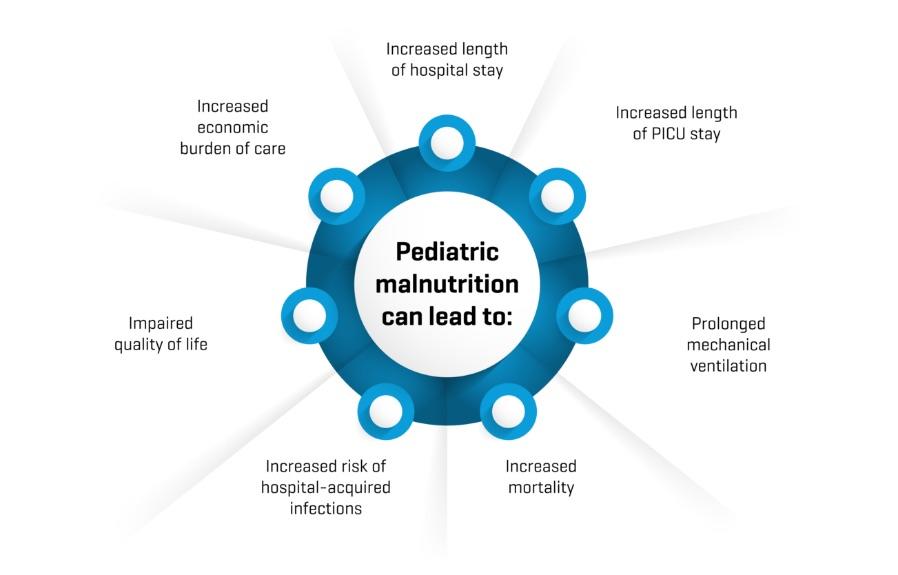Pediatrics
Optimizing parenteral nutrition therapy in pediatric patients through advanced solutions including licensed industry-prepared ready-to-use three-chamber bags.
In critically ill children, poor nutritional status is associated with higher mortality and can result in long-term effects on growth.1 For children with chronic intestinal failure, parenteral nutrition (PN) is required to achieve adequate growth and fluid and electrolyte homeostasis.2 Baxter is dedicated to improving the nutritional status of children who require PN therapy by providing a range of standardized solutions optimized for pediatric patients to support growth and recovery.

Optimal nutritional balance plays a crucial role in growth and recovery in pediatric patients
As many as 40% of hospitalized children suffer from acute malnutrition.3 Children who are critically ill or recovering from serious injury are vulnerable to reduced intake of energy and protein, and the resulting malnutrition may have severe health consequences and impair long-term growth.1 For some pediatric patients who cannot receive adequate enteral nutrition, PN can be life-saving.1
Malnutrition in pediatric patients is associated with poor clinical outcomes4-11
Hospitalized children often receive suboptimal PN therapy
When PN is used to supplement or replace enteral nutrition, the timing, quality, and quantity of nutritional intake are not consistently achieved.12 Individualized PN provides a lower nutrient intake that is associated with poorer weight gain and increased nutritional deficits.13 Compounded PN also entails increased risk of safety issues including compounding errors, contamination, or incompatibility, which can arise at any stage from prescription to preparation to administration.14
37%
of manually compounded PN solutions had errors according to a US study15
22%
of partly automated PN solutions had errors according to a US study15
4 of 5
PN orders can be met with standardized formulations16

PN solutions optimized for pediatric patients
PN formulations for children should provide sufficient nutrients not only for the maintenance of body tissues but also for growth.19



